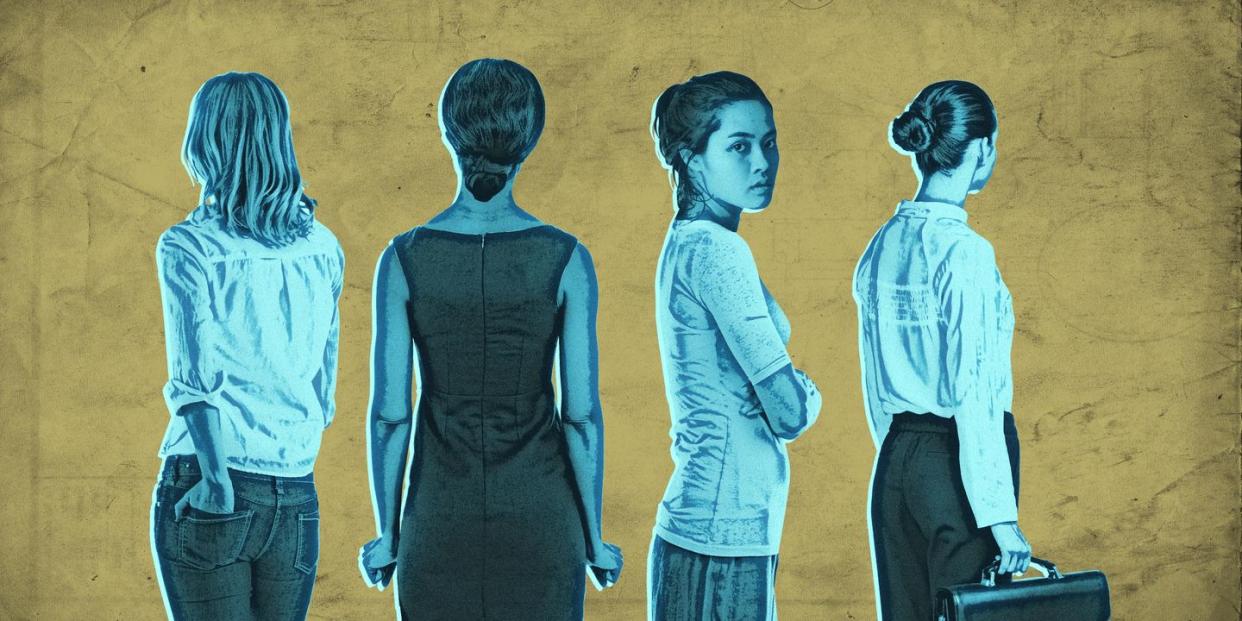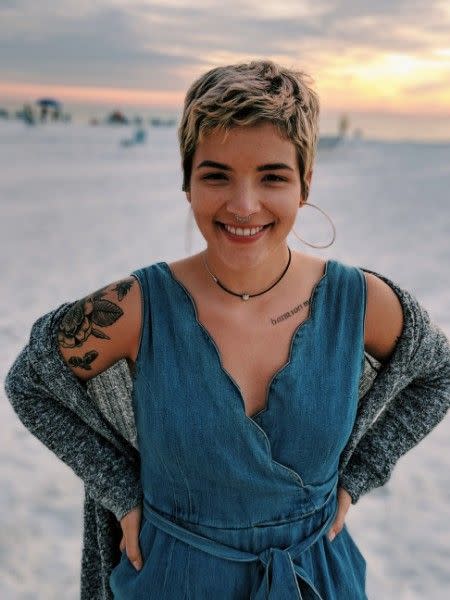'I Was Assaulted By Someone I Know, And I Reported Them. They Were Barely Punished'

I still remember lazily clicking through one of those online trainings you get on sexual assault. I was an incoming freshman at DePaul University in Chicago, and I knew the right answers. “Yes, I know that it could happen to me,” and “No, I would never accept a drink from a stranger.” I didn’t know that just three months later, on January 28th, 2016, I would be raped. I didn’t know that it would happen, not in some dark corner of a fraternity party, but in the dorm room of someone I knew—or that the drink that made me vulnerable would be poured by my own hand.
On February 28, 2016, one month to the day after my assault, I watched as Lady Gaga brought survivors on stage during her Oscars performance for It's On Us, an initiative started by Vice President Biden in 2014. I was one of 348 million people who tweeted #ItsOnUs in the week following, knowing that Gaga was speaking directly to people like me.
But I didn’t truly feel the impact of the It’s On Us social media campaign until I was standing in front of a panel of my peers and professors a few months later, my hands shaking uncontrollably but my voice steady as I plainly stated what my rapist had done to me in the dorm room that night. I squeezed my eyes shut before speaking, imagining all of the brave survivors that had stood on much bigger stages and still managed to hold their own. I imagined Chanel Miller, then known only as Emily Doe, who was going through her own trial against Brock Turner. I told my story that day with the strength of all of the women before me holding me up, thinking that would be enough.
Despite text messages printed on university paper, letters written by friends and families attesting to my character, and my own statement, my rapist was suspended for only two quarters, the equivalent of four and a half months. I was devastated, but more than that, I was angry. I had done all of the research I could on campus sexual assault and knew that I was one of the lucky ones. How was that possible? What were we doing wrong?
The path ahead of me was clear: I had to get involved. This led me back to It’s On Us, where I served as a campus organizer, a regional organizer, and even spoke on a nationwide call addressing sexual violence on college campuses with Alyssa Milano and Vice President Biden himself.
Regardless of political viewpoints or partisanship, Biden-led initiatives like It’s On Us have garnered support on both sides. This week, Biden released a new plan detailing how he would build on his history of supporting survivors, including students. His plan proposes giving survivors access to affordable housing, cash assistance, and guaranteed paid leave, so they can put safety for themselves and their families first, without worrying about losing their job or having a safe place to stay. It acknowledges how the internet has become a new frontier for harassment, abuse, and sexual violence, suggesting actions like a task force and new legislation to protect victims from being targeted online.
It’s not enough for men in power to say that they support survivors; they have to act. Biden’s work during the Obama Administration, his championing of the Violence Against Women Act, and his new policy laying out what he’ll do as president to continue the fight are clear examples of what can be achieved when those in power stand up for those who have been made to believe that they have none.
We are at a crucial moment in time. We cannot continue to be reactive to the hundreds of allegations made against famous men since the 2016 election, but instead need to be proactive to address the prevalence of sexual violence across our society.
VAWA is an incredible piece of legislation that acknowledges this fact, and each reauthorization has proven that it can change with the times. It is what we need today. Leader McConnell is refusing to reauthorize VAWA this year, and we need to demand change. This isn’t about politics, nor is it just about people like me—young, white women who have the chance to stand up to their rapists. It is about every immigrant, indigenous, queer, disabled, transgender, male, black, Asian, and Latinx who's gone through a similar experience. It is about the survivors.

Maeve Sheridan is a lifetime sexual assault advocate. She worked with It's On Us for three years and now lives in D.C. with her dog, two cats, and wonderful partner.
You Might Also Like

